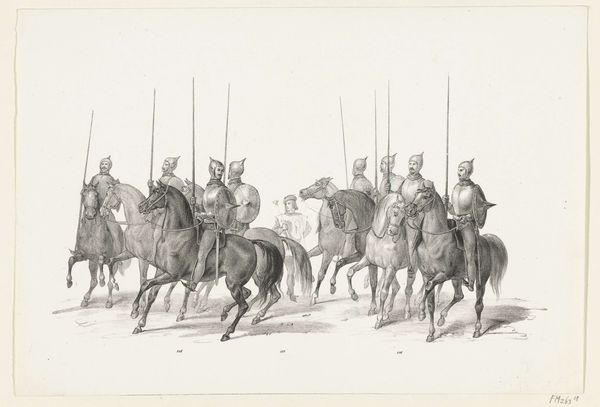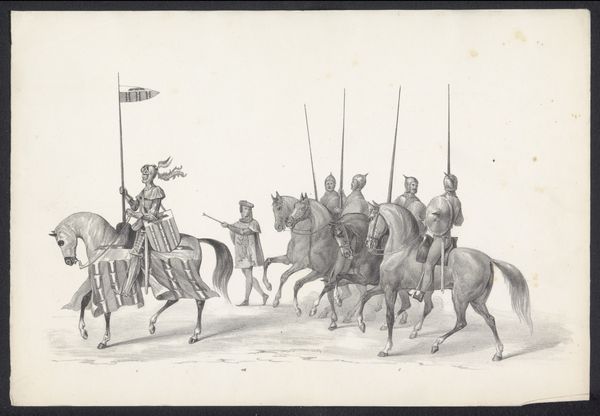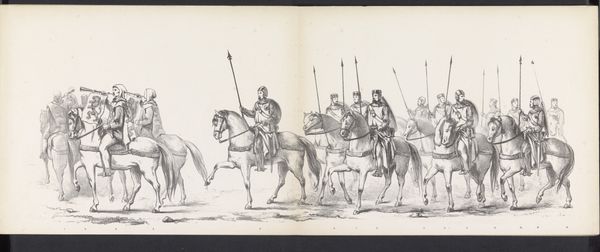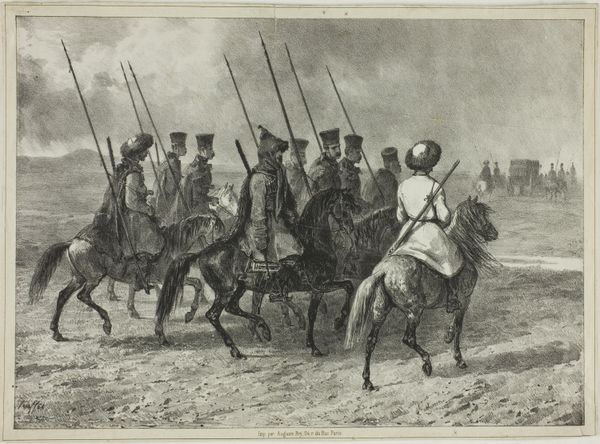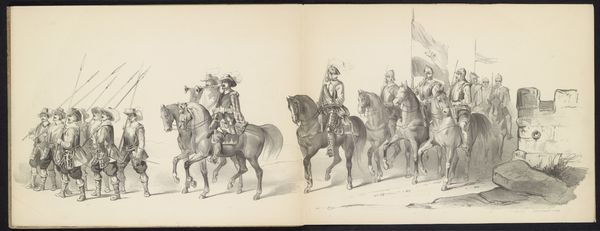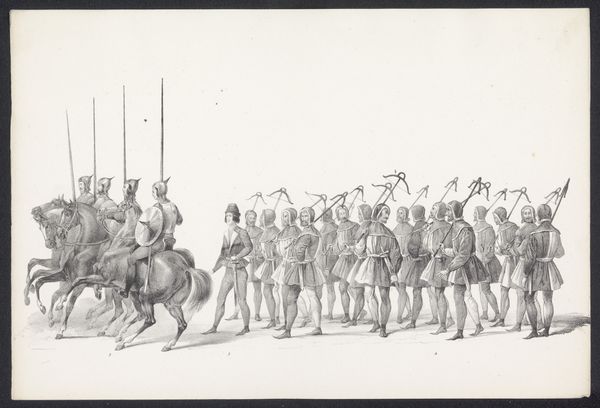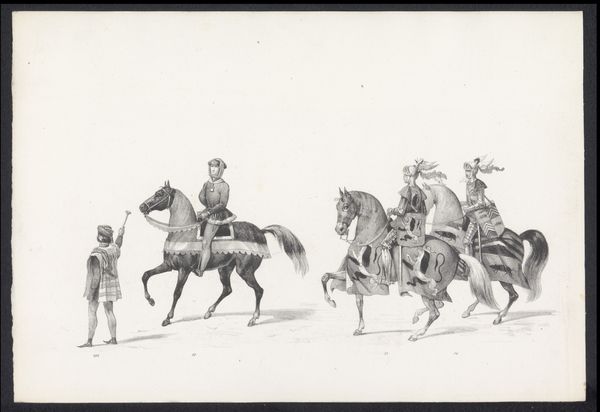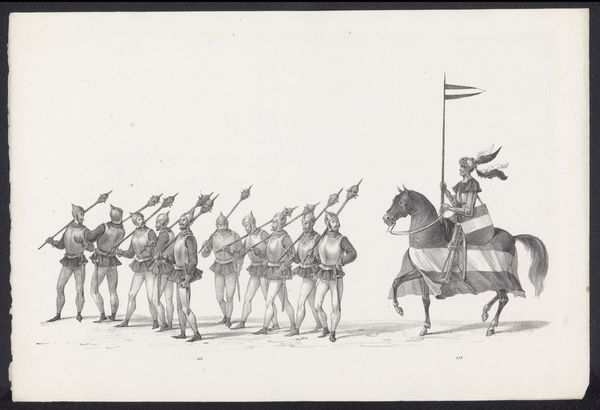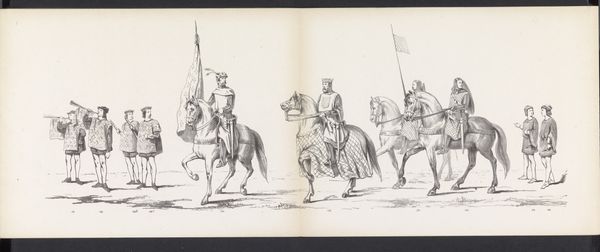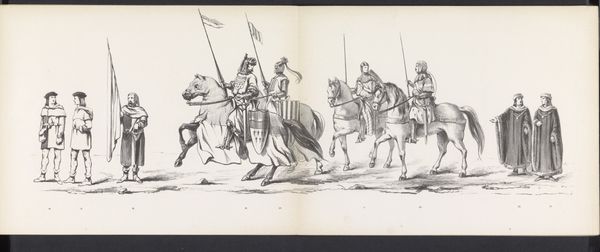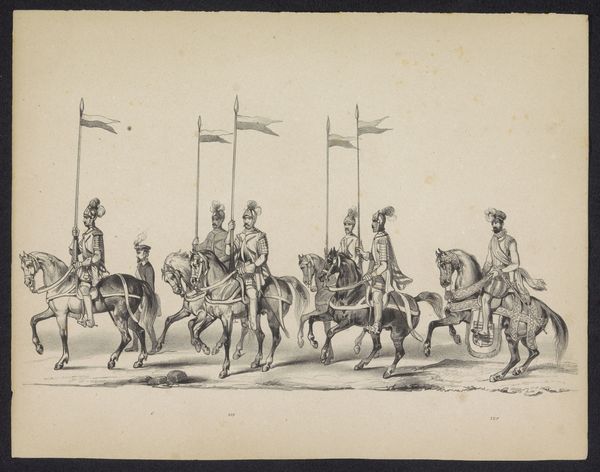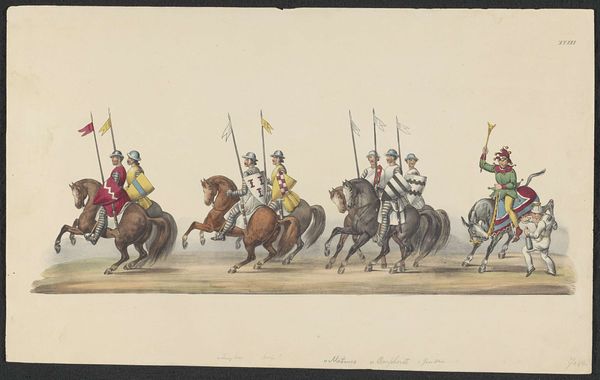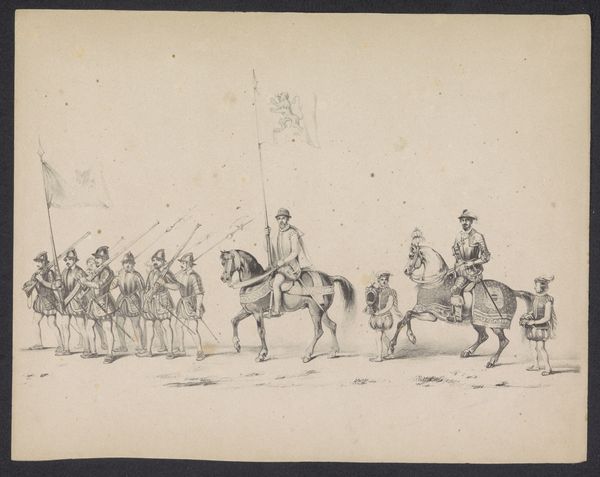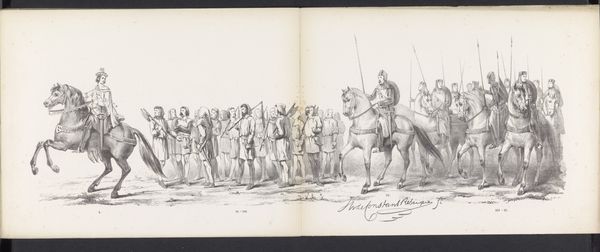
Maskerade door studenten van de Leidse Hogeschool, 1840 (plaat 19) 1840
0:00
0:00
jacobusludovicuscornet
Rijksmuseum
drawing, pencil, graphite
#
portrait
#
drawing
#
pen illustration
#
pen sketch
#
pencil sketch
#
group-portraits
#
pencil
#
graphite
#
genre-painting
#
history-painting
#
academic-art
Dimensions: height 232 mm, width 340 mm
Copyright: Rijks Museum: Open Domain
Jacobus Ludovicus Cornet created this image of students of Leiden University in masquerade in 1840, using lithography. This printing technique involves drawing an image with a greasy crayon onto a flat slab of limestone, treating the stone so that ink adheres only to the drawn areas, and then transferring the image to paper. Here, Cornet's masterful strokes capture the texture of metal armor and the muscular forms of horses. The process of lithography, while seemingly removed from traditional artistic practices, shares qualities with drawing. The artist’s hand is directly responsible for the marks we see, creating a sense of immediacy and intimacy. The masquerade itself speaks to social dynamics. Dressing up as historical figures allowed the students to temporarily escape social norms, while also reinforcing their connection to a shared cultural heritage. By using lithography, Cornet democratized the image, making it accessible to a wider audience beyond the elite circles depicted. It invites reflection on the relationship between tradition, performance, and social identity.
Comments
No comments
Be the first to comment and join the conversation on the ultimate creative platform.
